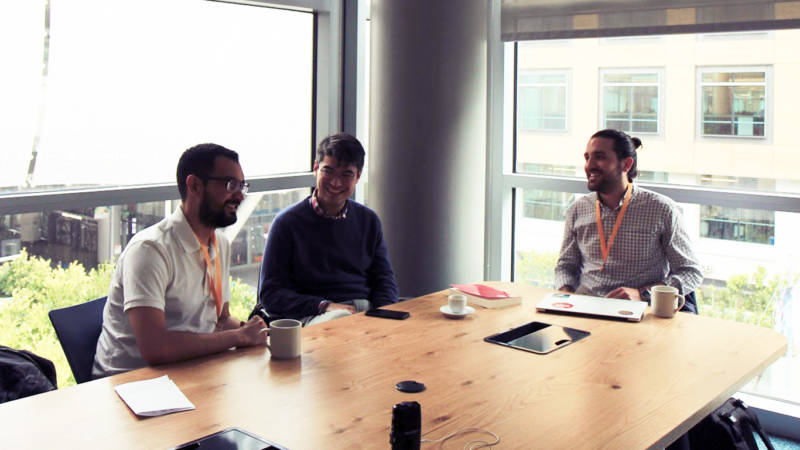More people are fleeing Venezuela as the country continues to experience hyperinflation, electrical blackouts and food and medicine shortages.
According to a report by the United Nations High Commissioner for Refugees, more than 4 million people have left in recent years.
And while most ended up in Columbia, Peru, and Chile, some are in Silicon Valley, working for tech companies like Airbnb and Slack. These workers are hoping to help their home country through hackathons — with the goal of using technology Venezuelans.
President Nicolás Maduro succeeded Hugo Chávez in 2013. Maduro and his party increasingly took control over all parts of the government. The United States issued sanctions agains the government and in early 2019, Juan Guaidó, head of the opposition party, declared himself to be president. The U.S. and more than 50 countries recognize Guaidó as the country's leader.
When Rafael Chacón left his home country ten years ago, he was sure he’d be back soon. Chacón is an engineer, and while he was excited to work at startups in the U.S. and Canada, he eventually wanted to return to the Venezuela. As the years passed and the crisis continued to get worse, however, his hopes of returning home declined.
“To me, it’s like, the country that I grew up no longer exists,” he said. “For immigrants, you always have this duality that you don’t really belong to the place that you’re living now, but you also don’t belong to the place that you come from. But for Venezuelans that’s extreme because of how radical and rapid the change has been.”
Chacón, who now works at Slack, wanted to do more than just give money and aid. He teamed up with product engineers Jose Montes de Oca and Marcos Ciarrocchi to create Code for Venezuela.
In April, they threw hackathons in San Francisco, Buenos Aires, Toronto, Barcelona and Bogotá to encourage people to put their coding skills to use, to solve ongoing issues in Venezuela.
“It went beyond our expectations, to be honest,” said Ciarrocchi. Over 200 people participated.
The group now works with nonprofit organizations and doctors to identify issues that can be easily solved using software.
“We are not the best people to say what needs to be done because for good or for bad we’ve been abroad for a long time,” Chacón admitted.
Today, they’re launching a series of tools that use Twitter data and machine learning to map disease outbreaks — like malaria — and connect those in need of medical supplies with those who have them.
One of the doctors they work with, Julio Castro, from the Central University in Caracas, Venezuela participated in the hackathons. Castro works in infectious diseases and said that even something as simple as tracking an power blackout could be helpful for people like him, who work in under-resourced hospitals.
They need to know when to schedule surgery and where to reroute medicine if there is no electricity, he said. It’s hard to say when Venezuela will be free of the grip of its authoritarian president Maduro, and his backers.
But Chacón hangs on to the hope his home country can turn around eventually, with a little help from its diaspora.
“We can take something positive out of this tragedy, because there is no other way to put it, and somehow, with all that community that is now spread, start building the country that we never had,” he said.
